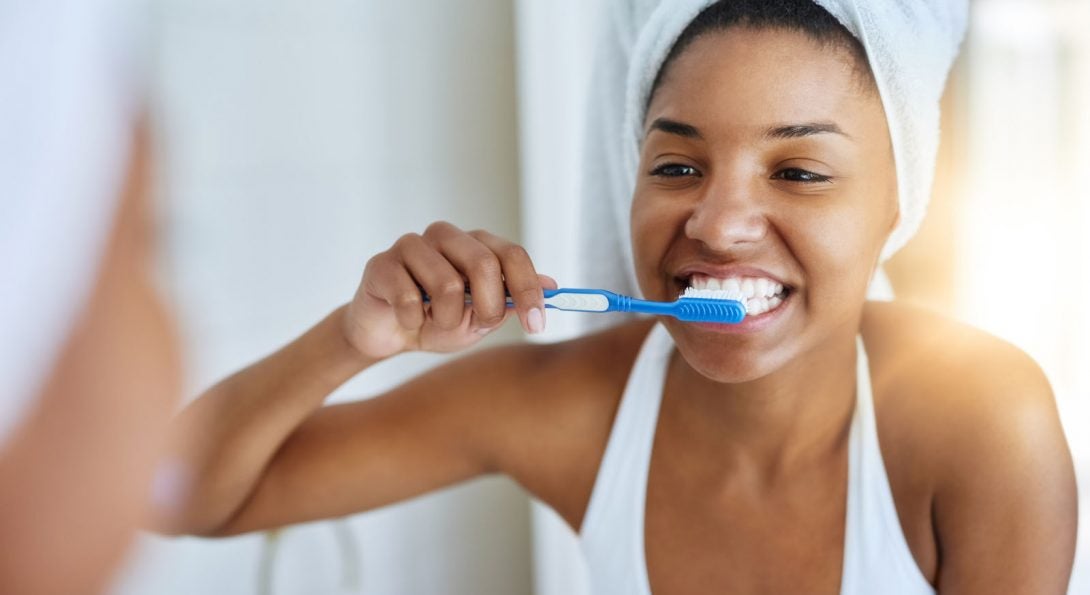Should I Brush My Teeth After Every Meal? Discover the Essential Truth

To maintain good oral hygiene, it is recommended to brush your teeth after every meal. Regular brushing helps remove food particles, prevents plaque buildup, and lowers the risk of dental problems.
Proper dental care is essential for a healthy smile and overall well-being. Taking a few minutes to brush after meals can go a long way in preserving your teeth and keeping your breath fresh. So, make it a habit to brush your teeth after every meal for optimal dental health.
The Importance Of Brushing Teeth After Every Meal
The Importance of Brushing Teeth After Every Meal
Brushing teeth after every meal plays a crucial role in oral hygiene. It helps in removing food particles and bacteria, which in turn prevents tooth decay and gum diseases. By brushing after each meal, you can maintain a clean and healthy mouth.
Proper dental care is essential for maintaining fresh breath throughout the day. Brushing removes plaque and food debris that can cause bad breath. It also helps in preventing stains and discoloration of teeth, ensuring a brighter smile. Regular brushing, along with flossing and using mouthwash, is the foundation of good oral hygiene.

Credit: dentistry.uic.edu
Myth Or Fact: Brushing Teeth After Every Meal Causes Damage
Brushing your teeth after every meal is often recommended for maintaining good oral hygiene. However, there are concerns that frequent brushing may cause damage to the tooth enamel and gum irritation. It is important to address these concerns and separate fact from fiction.
The truth is, brushing too aggressively or using a hard-bristled toothbrush can indeed lead to enamel erosion and gum damage. It is important to use a soft-bristled toothbrush and gentle, circular motions while brushing.
Additionally, using a toothpaste with fluoride helps strengthen the enamel and protect against tooth decay. It is also recommended to wait for at least 30 minutes after consuming acidic foods or drinks before brushing, as the acid weakens the enamel temporarily.
In conclusion, brushing your teeth after every meal is generally beneficial for oral health. However, it is crucial to use the right toothbrush, toothpaste, and technique to prevent any potential damage. Consult with your dentist to determine the best brushing routine for your specific needs.
Optimal Times And Techniques For Brushing After Meals
Optimal Times and Techniques for Brushing After Meals
Exploring the ideal timeline for brushing after different types of meals
Brushing your teeth after every meal is commonly recommended by dentists for maintaining good oral hygiene. However, it’s important to understand that the timing and technique of brushing can vary based on the type of meal consumed.
For meals containing acidic foods or drinks, it’s advisable to wait at least 30 minutes before brushing to allow the saliva to neutralize the acids, which can soften the tooth enamel. On the other hand, meals high in sugars and carbohydrates can contribute to plaque formation, so brushing immediately afterwards can help remove food particles and prevent bacterial growth.
When it comes to effective techniques, using a soft-bristled brush and gentle circular motions can help remove food particles without causing harm to the gums or enamel. Additionally, consider flossing to remove any stuck food debris between teeth.
In situations where immediate brushing is not possible, rinsing your mouth with water, chewing sugar-free gum, or using an antibacterial mouthwash can provide temporary on-the-go dental care. Remember, maintaining a consistent oral care routine is key to maintaining healthy teeth and gums.
Frequently Asked Questions Of Should I Brush My Teeth After Every Meal
Is It Ok To Brush Teeth After Every Meal?
Yes, it is recommended to brush your teeth after every meal for optimal oral hygiene.
What Happens If You Don’t Brush Your Teeth After Every Meal?
Not brushing your teeth after every meal can lead to the growth of bacteria and plaque. This can cause tooth decay, bad breath, and gum disease. It’s important to brush regularly to maintain your oral health.
Can I Brush My Teeth 3 Times A Day?
Yes, brushing your teeth three times a day is generally recommended for maintaining good oral health. However, it’s important to use a soft-bristled toothbrush and gentle pressure to prevent damaging your gums and tooth enamel. Additionally, be mindful of using fluoride toothpaste and flossing regularly for optimal dental care.
Is It Better To Brush Your Teeth After Waking Up Or After Eating?
It is better to brush your teeth after waking up in the morning to remove the bacteria that accumulate overnight. Brushing after eating can cause damage to the enamel due to acid present in food. So, brush in the morning and wait for at least 30 minutes after eating to maintain oral health.
Conclusion
Brushing your teeth after every meal can be beneficial in maintaining good oral hygiene. Regular brushing helps to remove food particles and prevent plaque buildup, reducing the risk of tooth decay and gum disease. However, it is important to follow proper technique and use a soft-bristle toothbrush to avoid damaging your teeth and gums.
Consulting with a dentist can provide further guidance on the ideal brushing frequency for your specific needs. Remember, a healthy smile starts with a consistent oral care routine.





